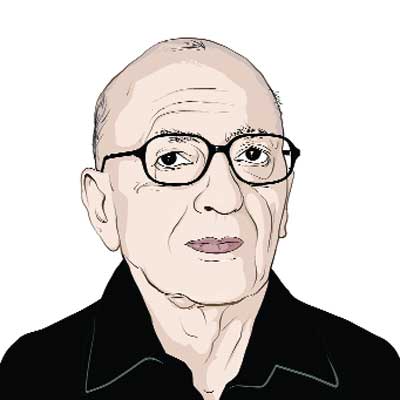Opinion A master of print
G. Kasturi,the longest serving editor of The Hindu,always insisted on adherence to the highest values of journalism
G. Kasturi,who died in Chennai at age 87 on Friday,was the longest serving editor of The Hindu,as also among the more distinguished of this long line. He served as the papers editor for a quarter of a century from 1965 to 1991,and it was during his time that it made its greatest strides. Making the papers first foray in the north,he started its Delhi edition to which a large number of other editions outside the south have since been added.
His distinctive quality was that he was a thorough professional who always insisted on adherence to the highest values and impeccable ethics of journalism. He was also a gentleman to his fingertips and unfailingly soft-spoken,as I discovered during a few meetings with him in the last few years,long after his retirement. I couldnt help being impressed by the simple,indeed austere,life he led,despite his huge resources. Those who had worked with him tell me that he never raised his voice even when they had made a serious mistake.
Their greater tribute to him is that as editor he was an expert as much on the tone and content of editorials not an intemperate word went into them as on the breadth and depth of news coverage. The news editor got due recognition in his time. Of print technology,they say,he was a master.
Kasturi was a family man and presided over a family-owned newspaper. It is all the more remarkable that in the last years of his life he succeeded in persuading the board of directors divided over some other issues that editorial authority of the paper should be freed from the familys control. His son,K. Venugopal,editor of The Hindu Newsline,was among those who vacated editorial chairs.
Born on December 17,1924,Kasturi received his schooling in Madras,as it was then called and then won a Masters degree in economics from Presidency College. He joined The Hindu in 1944 and in the 1950s was designated its joint editor. The paper proudly calls him its moderniser. He is survived by his wife of 64 years,two sons,a daughter and a number of grandchildren and great-grandchildren.
In one sense,I got to know him decades before I had the pleasure of meeting him. This was so because while researching on Indo-US relations in the American archives in the late 1980s and early 1990s,I came across several documents recording the conversations between him and successive US consul-generals in Madras,who used to go to him in search of both information and wisdom. One of these papers was fascinating. The American diplomat was trying to get confirmation of the reports he had got that Jawaharlal Nehru was about to appoint his sister,Vijayalakshmi Pandit,the vice president. Kasturis reply: Mr. Nehru has his weaknesses,like all of us,but this is something he would never do. Here is a clue to one of the mans endearing attributes. He was always objective. At the same time,he always thought of India and its place in the world. At my last meeting with him in 2007,he was depressed on this score.
It is well known that the starting of Frontline as a thoughtful fortnightly was Kasturis idea. What a coincidence it is that he should have passed away on its re-launch,around the 134th anniversary of foundation of The Hindu.
The writer is a Delhi-based political commentator




